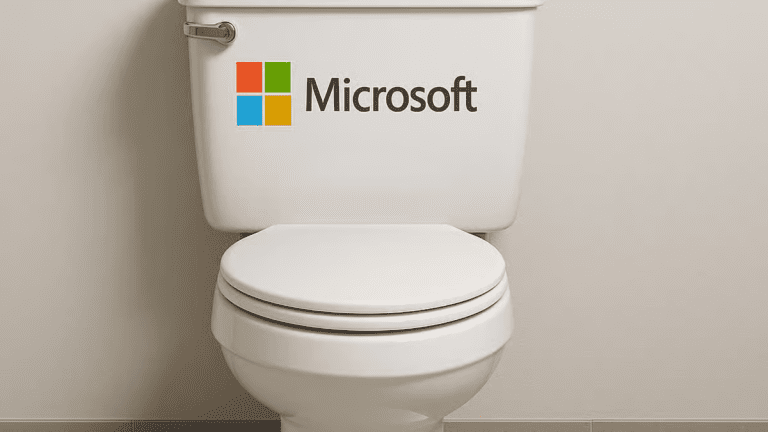
🕒 Last updated on July 24, 2025
In a move that has caught global attention, Microsoft has signed a massive deal with a Houston-based company called Vaulted Deep. The goal? To fight climate change by reducing its carbon footprint—and the way it’s doing it is quite unusual.
Microsoft’s Surprising Step Towards Going Green
Instead of just planting trees or investing in renewable energy, Microsoft is buying human waste. Yes, you read that right. Over the next 12 years, the tech company will purchase 4.9 million metric tons of organic waste, which includes not just human waste but also manure, treated sewage, and agricultural leftovers.
This isn’t just a one-time purchase. Microsoft plans to spend billions as part of its long-term plan to cancel out the pollution it creates from its operations, especially those involving Artificial Intelligence (AI). As AI grows more powerful, it also uses more electricity and water. This means it produces more pollution, mainly carbon dioxide and methane—two gases responsible for global warming.
To fix this, Microsoft wants to keep waste out of the air by burying it deep underground, where it can’t release harmful gases. This process is known as carbon removal.
Why Waste? How Burying It Helps the Planet
So why is Microsoft buying waste instead of using other green technologies?
🧱 Finland builds world’s largest sand battery — and it’s heating homes without oil or pollution
The answer lies in how greenhouse gases like carbon dioxide (CO₂) and methane (CH₄) are created. When organic materials like food scraps, poop, or farm waste break down, they naturally release these gases into the air. But if that same waste is buried properly, those gases are trapped underground instead of floating into the sky.
Vaulted Deep specializes in doing just that. The company collects waste materials, processes them, and then injects them deep into the earth using safe and approved methods. Once underground, the waste does not decompose in the same way, which means no harmful gas leaks into the atmosphere.
This technique is not only smart—it’s also one of the cheapest ways to remove carbon from the environment. That’s why companies like Microsoft are turning to such solutions. It allows them to offset the damage their massive data centers and AI systems do to the planet.
According to reports, the deal with Vaulted Deep is now the second-largest carbon removal agreement ever signed globally. The biggest one? That was also by Microsoft, earlier this year, with another firm called AtmosClear, to remove 6.75 million metric tons of carbon dioxide over 15 years.
How Much Is Microsoft Really Paying?
So, how much is Microsoft paying for this deal?
Vaulted Deep has not publicly shared the exact amount Microsoft is spending. But some clues give us an idea.
The company usually charges about $350 to remove one tonne of carbon dioxide using its burial method. That means removing 4.9 million tonnes could potentially cost over $1.7 billion if charged at the full rate. However, the actual amount Microsoft is paying may be lower.
🔭 ESA joins forces with China as geopolitics boil over — shuns sanctions pressure
Vaulted Deep’s CEO noted that the price per ton is expected to go down over time, and Microsoft may have received a different rate altogether due to the scale and duration of the deal.
Still, it’s clear that this is a multi-billion dollar agreement. The financial support from Microsoft gives Vaulted Deep the green light to expand its operations and build more sites. In simple terms, Microsoft is saying, “We’ll keep buying what you bury, so go ahead and dig more holes.”
This deal proves how serious the tech industry is becoming about climate change. It also shows how big companies are now using creative and surprising solutions—even involving poop—to tackle a very real and growing problem.
And while the idea of paying to bury waste might sound strange, it could become one of the most practical ways to help the planet—especially if more companies follow Microsoft’s lead.